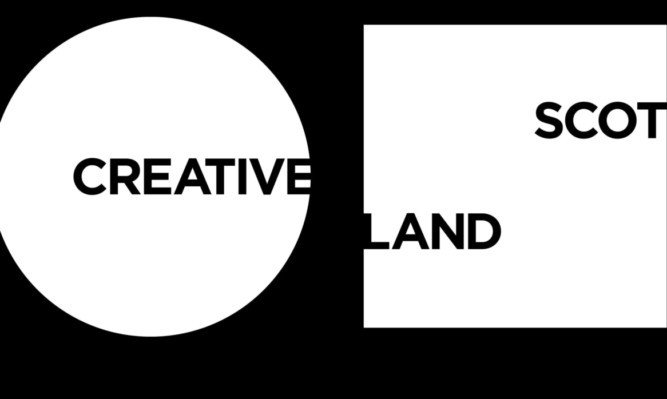
Brazen fraudsters racked up more than £100,000 on an arts quango’s credit card before anyone noticed.
Criminals booked luxury holidays and flights to Africa and the Caribbean unobstructed as workers at Creative Scotland claimed they were too busy to check the group’s monthly credit card statements.
Scores of fraudulent transactions were racked up all over the world over an eight-month period, with the fraud only coming to light when the spending spree tipped the card over its limit.
Amazingly, bosses at the quango responsible for funding the arts in Scotland then rejected their auditor’s advice to go the police and report the crime immediately.
A probe found details of the cards had most likely found their way into the hands of criminals because staff were in the habit of faxing copies of the cards to overseas hotels when making bookings.
To put the spending into perspective, since its formation in 2010 Creative Scotland has spent a total of £137,404 legitimately on credit cards.
That works at £3,800-a-month three-and-a-half times less than the £13,000-a-month squandered by the fraudsters.
Critics have hit out at the “blas attitude” of Creative Scotland to taxpayers’ money and the fact that no civil servants have been held to account.
Matthew Sinclair, chief executive of the TaxPayers’ Alliance, said: “These figures suggest that Creative Scotland staff are totally oblivious of the need to spend taxpayers’ cash with care and in a way that delivers value for money.
“It’s outrageous that while hard-pressed families are having to tighten their belts, this unelected quango has been spending an exorbitant amount of their money on lavish hospitality and travel around the world.
“What is even more worrying is the blas attitude shown towards a fraud in which a six-figure sum of taxpayers’ cash was stolen, yet no one bothered to investigate it or hold anyone to account.”
A total of 132 fraudulent transactions worth £104,600 were racked up on the Creative Scotland corporate credit card between December 2010 and July 2011.
Auditors Deloitte were called in after the quango found out about the fraud and its damning report, obtained by The Sunday Post, identified a “serious control lapse” in the quango.
Auditors found it was common practice to allow the eight credit cards to be passed around staff and some workers even kept photocopies of them for ease of use when making purchases.
However, the auditor found the “most obvious means” by which the details were obtained by criminals was when staff were faxing a copy of both sides of the cards to hotels when booking rooms.
The quango’s finance department was responsible for checking the credit card bills every month but blamed an “increased workload” and a broken link to a website with the card’s online statements for not doing so.
The auditor advised Creative Scotland to report the incident to the police immediately. Instead, it waited until four months after the crime was spotted, and Deloitte had completed its report, before going to them.
The November 2011 Deloitte report shows credit card provider JP Morgan eventually reimbursed £70,400 to the quango when the fraudulent transactions were confirmed.
Scottish Conservative deputy leader Jackson Carlaw said: “This organisation has often been criticised for being wasteful with money. Now it seems it’s even allowing other people to be wasteful on its behalf.”
A Creative Scotland spokesman said: “This fraud occurred when Creative Scotland was first formed and in the process of bringing together two sets of finance systems from the Scottish Arts Council and Scottish Screen.
“We fully acknowledge weaknesses in our systems at that time which led to the fraud going undetected.
“Robust systems are now in place to prevent such a fraud happening again. We have regular auditing and continue to improve the quality of our financial monitoring. Our new chief executive, Janet Archer, has actioned a further review of our internal expenses policy which is under way.”
Five-star hotels, top restaurants and flights to all corners of the globe are among the “legitimate” purchases made on the Creative Scotland credit cards.
Documents obtained by The Sunday Post show a total of £137,404 of authorised credit card spending has been racked up by the body since it was formed in 2010.
The quango has faced mounting criticism for the extravagant grants it hands out including £1,150 for an artist to go on a hula-dancing trip to Tonga but it appears its credit card spending is just as generous.
Among the transactions was £716 for a stay in a five-star hotel in Rio de Janeiro overlooking the famous Copacabana beach last year.
Stays in top Scots hotels, including Glasgow’s Blythswood Square and Edinburgh’s Glasshouse, have also been charged to the taxpayer.
Trips to New York, Venice and Amsterdam are also on the statements for the last three years.
Thousands of pounds has been spent on items such as concert tickets, music downloads, flowers and drink orders for Creative Scotland events.
A spokesman for the quango said: “Senior staff are occasionally required to be part of international delegations along with other partners.
“As such, senior staff do attend international and domestic conferences and events relating to the arts, screen and creative industries as reflects Creative Scotland’s role.
“Similarly, senior staff will host receptions, dinners and meetings with people representing arts, screen organisations or others.
“This spend is closely monitored and reflects the nature of the relationships being developed in specific sectors such as film, festivals, showcasing and cultural diplomacy.”

Enjoy the convenience of having The Sunday Post delivered as a digital ePaper straight to your smartphone, tablet or computer.
Subscribe for only £5.49 a month and enjoy all the benefits of the printed paper as a digital replica.
Subscribe